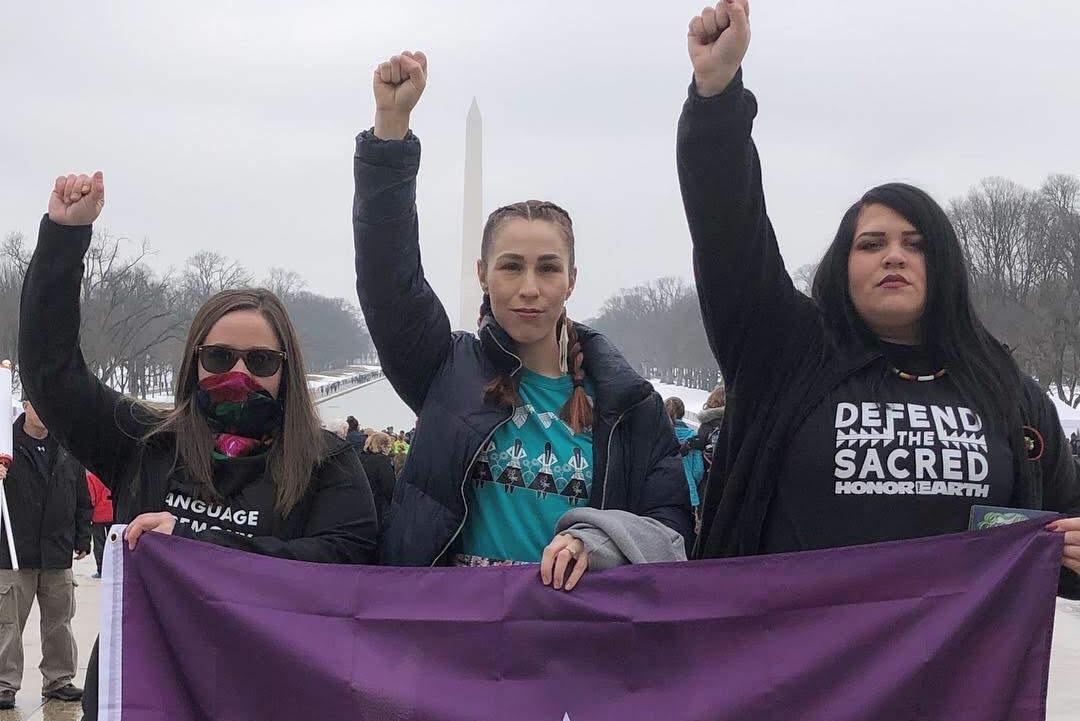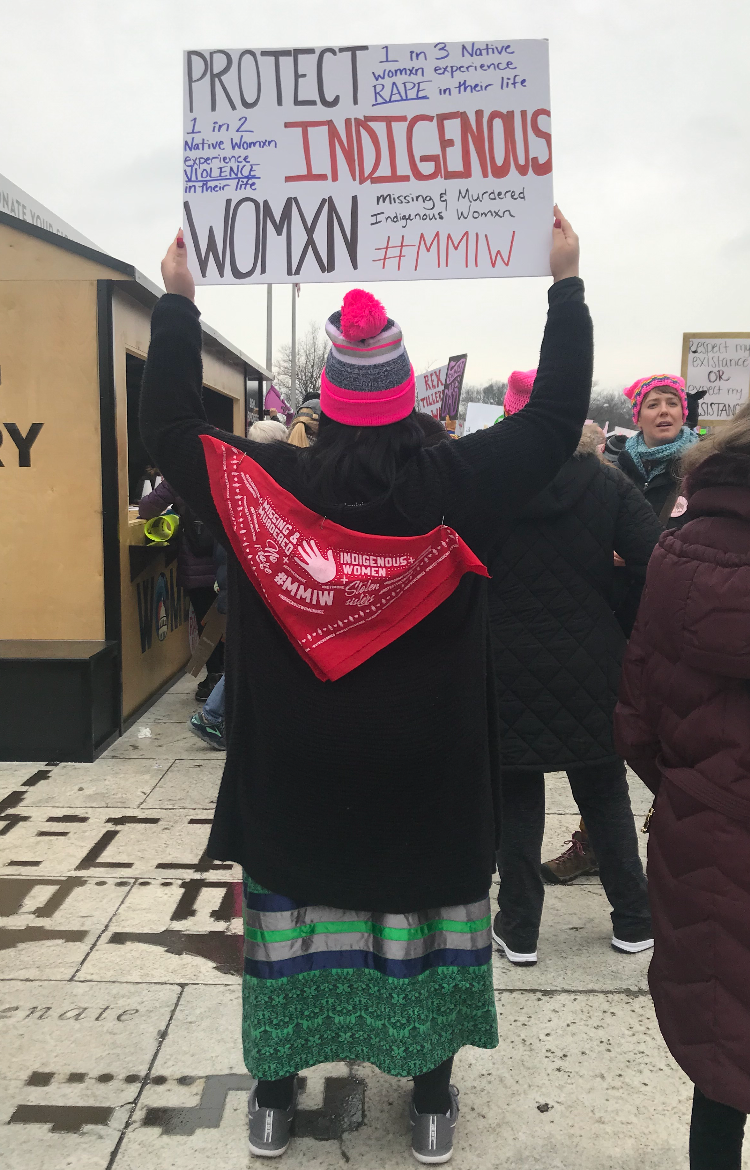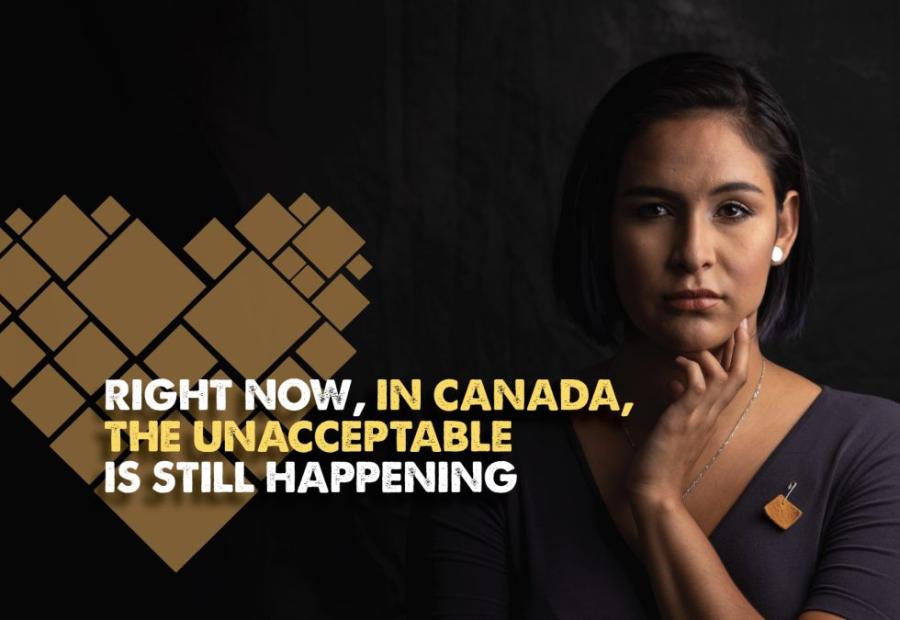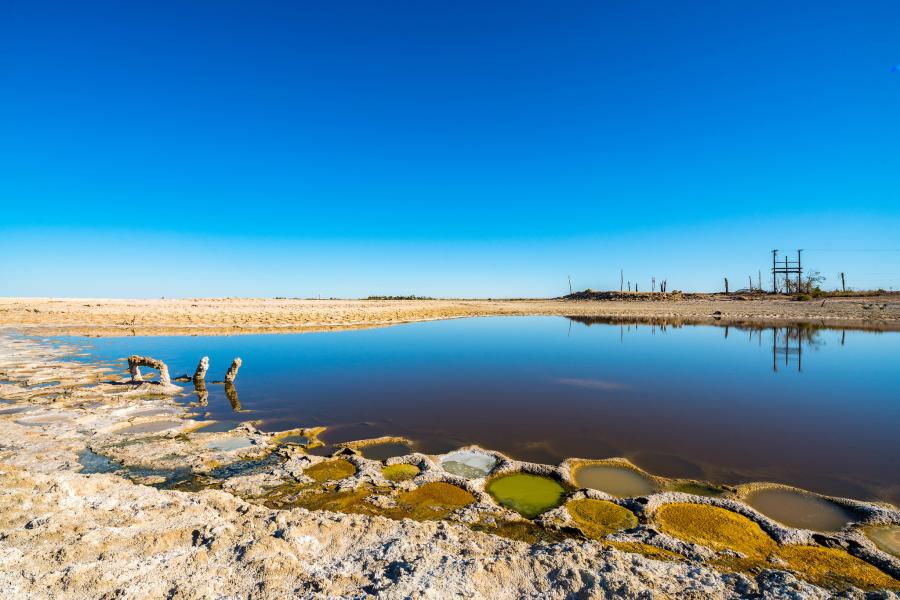
Members of the Oneida Nation of Wisconsin, Yekuhsiyo Rosa Francour, Stara Cornelius, Daisee Francour at the 2018 Indigenous Peoples March in Washington D.C..
Shékoli swakwe·ku, Daisee ni yukyats. Anowal ni wakitalo:tʌ. Onʌyota'a:ka ni wakahutsyotʌ. My name is Daisee Francour, I am an enrolled citizen of the Oneida Nation of Wisconsin and a member of the Turtle Clan. I write to you all, my relatives, to share my thoughts and reflections on Indigenous Peoples Day, and how we can collectively support Indigenous Peoples with resolutions for the future.
The idea of dedicating a day to recognize and honor Indigenous Peoples is long overdue. This day of “honor” made its first appearance on October 12, 1992, when the city council of Berkeley, California, established the first Indigenous Peoples Day, replacing the overrated holiday, Christopher Columbus Day, citywide. The city of Berkeley made a courageous effort to set an important and necessary precedence of recognizing the existence of Indigenous Peoples, opening a door of commitment to right the wrongs of a painful history of genocide, stolen land and violence against Indigenous women and children. Not until 2014, did the city council of Minneapolis, Minnesota, follow pursuit to also rename and replace Columbus Day with Indigenous Peoples Day. In the last few years we have seen an increasing number of cities, Tribal governments and non-governmental institutions replace Columbus Day with Indigenous Peoples Day.
It is clear that replacing the colonial holiday with a single day to recognize and honor Indigenous Peoples is a step in the right direction, but it is just the beginning to building a collective resolution with supplemental actions to right the wrongs this country has waged against this land’s first peoples. To start, we must think and act beyond one day a year to recognize Indigenous Peoples, because undoing 500+ years of colonialism will not be resolved in one day. Undoing long-standing, false misconceptions and systemic racism against Indigenous Peoples should not rest on the shoulders of Indigenous Peoples alone, rather our allies must also organize and mobilize in coordination with us to resolve the historical and present day warfare against our communities.
To support the undoing of generations of violence and trauma against Indigenous Peoples and making room for a more equitable future means correcting and changing behaviors. Non-Indigenous people and allies must challenge their pre-existing bias and misinformation that they hold about Indigenous Peoples and our cultures. This begins with breaking down harmful language and stereotypes when talking about Indigenous Peoples. Refrain from using past tense and grouping the hundreds and thousands of Indigenous Peoples and cultures that exist here on Turtle Island into one stand-alone culture or group. We are not a monolithic people, nor are all of our cultures and languages the same. Each Tribe, Nation and Indigenous community has a rich, diverse and resilient culture and language that exists today. We are still here, and talking about us as if we are a thing of the past and no longer here is an act of violence, and reinforces the discrimination and racism we endure today. When referencing Indigenous Peoples in text, capitalizing the “I” in Indigenous recognizes our people as a legitimate and an important group that demands respect when addressed. Moreover, using the plural form of “Peoples” acknowledges the diversity and uniqueness from one nation to the next.

Daisee Francour, San Francisco Women’s March, January 2020.
Furthermore, while our cultures and languages have existed alongside us since millennia, we are also contemporary people. We too, live in a modern world, and our cultures, languages and ways of life have evolved. Our cultures and languages are also thriving and our communities are not just in a state of threat, scarcity, or vulnerability. Our values teach us reciprocity, responsibility, respect, relationships and much more. Our understanding of family is not constricted to just those in our immediate family, but includes our extended family, community and all living things. By understanding that all things are related and interconnected, it illustrates our responsibility to steward, care for and respect one another and Mother Earth. By rejecting extractive and exploitative behaviors and instead living in reciprocity and in balance with our environment, we are following our original instructions. Indigenous Peoples have and in many ways continue to live in states of abundance and in fact, our values and original instructions are why we have remained so resilient.
As we look to the future, we cannot repeat history. This means centering Indigenous leadership, Indigenous rights and our sovereignty in all layers of decision making in this country. Every inch of land in the so-called United States is stolen land, and Indigenous Peoples are experts in how to steward this land and maintain balance in our ecosystems. Through our values, traditional knowledge, ceremonies, cultures and ancestral memories we hold the answers in how to restore our environment, and this world wretched with chaos. We must be included and centered in conversations and actions made about racial, social and climate justice. As social justice movements talk more about the inclusion of BIPOC voices, the “I”, which stands for Indigenous, should not just be a check-mark, as that is an act of tokenization, not solidarity. Conversations about decolonization should not be led by white people, but instead Indigenous Peoples (including the compensation for their time and labor). Engaging and collaborating with Indigenous Peoples requires authentic trust and relationship building, and should seek to build reciprocal relationships rather than transactional ones. Indigenous Peoples are the experts of their own futures, so when partnering with us, supporting our self-determination must be the ultimate goal.
Members of the Oneida Nation of Wisconsin, Yekuhsiyo Rosa Francour, Stara Cornelius, Daisee Francour at the 2018 Indigenous Peoples March in Washington D.C..
Moreover, Indigenous Peoples' well-being and futures are deeply tied to land, territories and natural resources. Numerous federal policies, capitalism, colonialism, and white supremacy have contributed to the displacement of Indigenous Peoples. Extractive industries and for-profit companies have added to this displacement and the violence against our communities and our homelands. We must remember that capitalism is unsustainable, and that it must constantly rebrand itself to maintain its validity; that includes finding new ways to hoard resources and control and maintain privileges affiliated with socioeconomic status. It should be noted that all wealth that is fueled by, and contributes to, capitalism, has been built off the backs of Indigenous Peoples, including our lands, territories, and natural resources. Capitalism shows up in our lives in many forms. From our food systems exploiting Indigenous migrant workers to the oil in your car that comes from an oil company violating treaty rights and building pipelines that spill and pollute our waterways, to construction companies building on sacred sites where our ancestors are buried, modern day colonialism still exists. Where the dispossession of land exists, so does extractive wealth. It is undeniable that every dollar or form of currency that is connected to capitalism is, in fact, dirty money. Familial, generational wealth can also be tied to the dispossession of stolen, Indigenous land and the exploited free labor of Black slaves. To right these wrongs, there should be a return of stolen land and extractive wealth. Research whose land you occupy and consider putting that local Indigenous community into your will, and regularly donate to Indigenous communities and Indigenous-led organizations as an act of solidarity.

Daisee Francour at 2018 Women’s March in Washington, D.C.
As cities, organizations, businesses and even individuals begin to reject Columbus Day and replace it with Indigenous Peoples Day, they should first and foremost ask themselves why they are taking this action. It shouldn’t be done because it is popular or good for public relations, but because it is the right thing to do. Acknowledging this day should be the floor, and not the ceiling in their actions to acknowledge and be in solidarity with Indigenous Peoples. Including us in their decision making, breaking down systemic barriers, honoring our rights, sovereignty and Free, Prior and Informed Consent should be other necessary acts of solidarity they must take on. Our home has become your home, and we are more than just a holiday-- we are a part of the same community, and we demand dignity, equality and respect so we too, can determine our own livelihoods and futures. We cannot dedicate just one day to acknowledging Indigenous Peoples, each and every day can and should be an act of solidarity, by centering Indigenous leadership and collectively honoring and advocating for Indigenous rights.
-- Daisee Francour (Onʌyota'a:ka/Oneida) has worked 10+ years in non-profits, grassroots organizing and as a direct service provider by serving vulnerable groups like Native Americans with disabilities/special needs, domestic violence victims, the homeless, and formerly incarcerated inmates. This has deepened her advocacy and movement building work as a radical woman working in philanthropy and a former program officer at the Christensen Fund. Currently, she works as a strategist, resource mobilizer, organizational development consultant and philanthropic advisor to support Indigenous organizations locally and globally. Her work centers to empower Tribes, Native Nations as well as Native-led institutions to build their capacity, leadership, organizational infrastructure and develop holistic strategies to support their resource generation and organizational sustainability. Daisee holds a MPPA from Adler University and a Bachelors in sociology and criminal justice from University of Wisconsin—Parkside.


